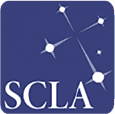
Not Such a Signature Trade Mark
Not Such a Signature Trade Mark

The owners of Yalumba and Jacob’s Creek wine recently battled it out in the Federal Court over an alleged trademark infringement. The issue was whether the Jacob’s Creek “Barossa Signature” sub-brand was deceptively similar to “The Signature” trademark which was previously registered for Yalumba wine.
The facts
In September 1999, Adelaide based Samuel Smith & Son, owners of “The Signature” line by Yalumba, registered a trademark over “The Signature”. The trademark was registered in class 33 for alcoholic beverages. In September 2015, global company Pernod Richard launched the “Barossa Signature” line under a Jacob’s Creek sub-brand. Shortly afterwards, Samuel Smith & Son brought proceedings in the Federal Court, arguing that “Barossa Signature” was deceptively similar to the name of its line.
The law
When someone applies for a trade mark, a description of the goods or services in which they intend to use the trade mark must be provided. If successfully registered, the trade mark will generally be protected in that category of goods or services.
Trade mark use and protection are covered under the Trade Marks Act 1995 (Cth) (“Act”). The Act outlines that a trade mark may be infringed where:
1) a person uses a sign substantially identical with, or deceptively similar to, the trade mark for goods or services in the same category as the registered trademark.
2) A person uses a sign that is substantially identical with, or deceptively similar to the trade mark in relation to goods or services of the same description or that are closely related to the goods or services in which the trade mark is registered.
3) The trade mark is well-known in Australia and a person uses a sign that is substantially identical with or deceptively similar to unrelated goods or services, and because the trade mark is well known, the sign would likely be taken as indicating a connection between the unrelated goods or services and the owner of the trade mark.
The case
The court considered whether Pernod Ricard had used the “Barossa Signature” as a trade mark to distinguish its goods from another party’s goods (as defined under the Act). The court rejected Pernod Ricard’s argument that the mark was descriptive of the goods rather than a brand. It held that the mark was a “badge of origin” that consumers would recognise and use to inform their wine purchases.
The court then considered whether Pernod Ricard’s use of the word “signature” was likely to deceive consumers that the wine was associated with the Yalumba wine. Although it accepted that it had used a distinctive part of the Yalumba trade mark, the court found it did not have the effect of deceiving consumers. The use of the word “the” in Yalumba’s “The Signature” was sufficiently memorable to register in a consumer’s mind. Whether a trade mark is ‘deceptively similar’ to another will be based on the impression created in the mind of a consumer.
Evidence of the reputation of “The Signature” was not taken into account, despite existing for over 50 years. This was because the court held the trade mark was not so universal that consumers would be familiar with it being used in relation to the particular Yalumba wine.
Because the court held that the “The Signature” trademark was not infringed, it did need to formally consider the defence that Pernod Ricard intended, in good faith, to use the mark for the purpose of describing the location of the wine.
In any event, it indicated that Pernod Ricard would not be protected by this defence because the words “Barossa Signature” described both the location and distinguished the wine from other wines.
Take home points
Businesses should familiarise themselves with how trade marks are used. Even if you consider a phrase to be a description of goods or services, it can still infringe a trade mark. Action may be taken if it is substantially identical with, or deceptively similar to, another trade mark for goods or services of the same or similar class.
The court will assess the overall impression created by the marks in determining whether they are deceptively similar. An entity’s reputation will only be taken into account if a sufficient level of familiarity is established.
If you need help to register a trade mark, or need advice about infringement of a trademark, please contact Peter North or Caroline James on (03) 9629 9629. Find out more about our Business Team.
Copyright © 2021 Lewis Holdway Lawyers. Website Design By LGT Digital







